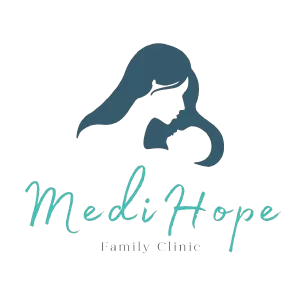Experiencing a miscarriage can be one of the most heartbreaking events in a woman's life. It's a loss that can leave you feeling lost, confused, and uncertain about what to do next. If you're wondering how to get pregnant fast after a miscarriage, you're not alone. Many women find themselves asking the same question.
One of the most common questions I hear from my patients is, “When can I try to get pregnant again after a miscarriage?” This is a complex question that doesn't have a one-size-fits-all answer. Each woman's body is unique, and recovery times can vary widely based on individual circumstances. It's essential to consult with your healthcare provider to discuss your specific situation, but understanding the general guidelines can help you feel more prepared.
Did you know that about one in four clinically recognized pregnancies ends in miscarriage? When considering earlier losses, such as biochemical pregnancies, that number increases significantly, with estimates suggesting that up to 70% of pregnancies may end in loss before a woman is even aware she is pregnant. These statistics highlight how common miscarriage is, and it's essential to understand that you are not to blame for what happened.
Many women experience feelings of guilt or inadequacy following a miscarriage. It's crucial to remember that most miscarriages are due to chromosomal abnormalities within the embryo, which are completely out of your control. You are not broken, and experiencing a miscarriage does not define your ability to conceive again in the future.
Before trying to conceive again, it's vital to ensure that the miscarriage has completely resolved. This means confirming with your healthcare provider that there are no remaining products of conception and that your hormone levels have returned to pre-pregnancy levels. Often, this involves follow-up ultrasounds or blood tests to monitor your hCG levels.
When it comes to timing, recommendations can vary. The American Board of Obstetricians and Gynecologists suggests waiting about one to two weeks after a miscarriage before having intercourse. However, many healthcare providers recommend waiting for one full menstrual cycle before trying to conceive again. This allows your body time to reset and can help with dating future pregnancies accurately.
Before actively trying to conceive again, ensure that you feel emotionally and physically ready. This includes having regular menstrual cycles again and feeling mentally prepared to embark on the journey of pregnancy. If you're not yet feeling up to it, that's completely okay. Take the time you need to heal and process your loss.
In some cases, a dilation and curettage (D&C) procedure may be necessary to remove retained tissue after a miscarriage. This procedure is generally safe, but it's essential to follow your healthcare provider's recommendations regarding recovery and when it's appropriate to start trying to conceive again. Following a D&C, your body may take a little longer to return to its regular cycle, so be patient with yourself during this time.
Physical recovery is a significant aspect of healing after a miscarriage. Ensure that you are following your doctor's advice regarding rest, nutrition, and any necessary follow-up appointments. Engaging in light physical activities, like walking, can also aid your recovery. Listen to your body and allow yourself time to heal fully.
Emotional recovery is equally important, and it's okay to seek help if you're struggling. Whether through therapy, support groups, or talking with loved ones, addressing your mental health is crucial. The grieving process can take time, and being patient with yourself during this period is essential.
Research indicates that most women can conceive successfully after a miscarriage, with many going on to have healthy pregnancies. However, it's crucial to have open discussions with your healthcare provider about any concerns you may have, especially if you've experienced multiple losses. Evidence shows that 85% of women who have had a miscarriage will go on to have a successful pregnancy.
Most miscarriages occur in the first trimester, often due to chromosomal abnormalities. Understanding that these losses are common can help alleviate feelings of guilt or inadequacy. Remember, it's not your fault, and many women go on to have healthy pregnancies after experiencing a loss.
The ABOG recommends that women wait at least one cycle before trying to conceive again to allow the body to heal adequately. However, each woman's situation is unique, and it's essential to have personalized discussions with your healthcare provider regarding your readiness to try again.
In my practice, I generally advise patients to wait until they have one normal menstrual cycle after a miscarriage before trying to conceive again. This timeframe allows the body to reset and can help ensure a more accurate dating for the next pregnancy. However, I also emphasize the importance of emotional readiness and encourage my patients to seek support if they need it.
Experiencing a miscarriage is undoubtedly challenging, but it's important to remember that you are not alone. Many women have walked this path and have gone on to have healthy pregnancies. Take the time you need to heal, both physically and emotionally, and seek support from your healthcare provider and loved ones. When you feel ready, you can embark on the journey of trying to conceive again with hope and confidence.
Our doctors will become familiar with you and your needs throughout the entire process, and help you make the best decision based on your unique circumstances.
Posted by GOLDEN GATE MEDIHOPE GROUP SDN BHD on 17 Nov 25

 Malaysia
Malaysia